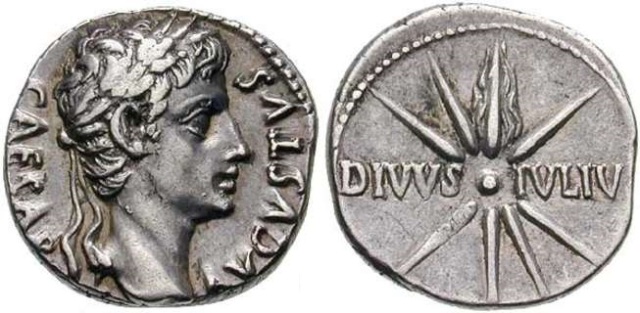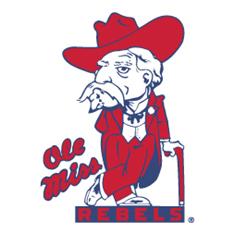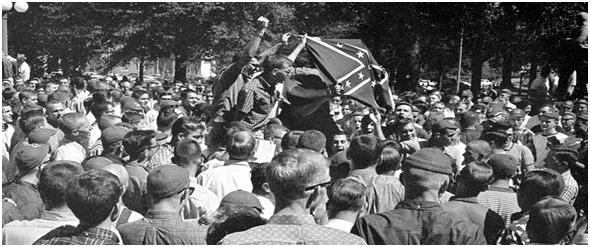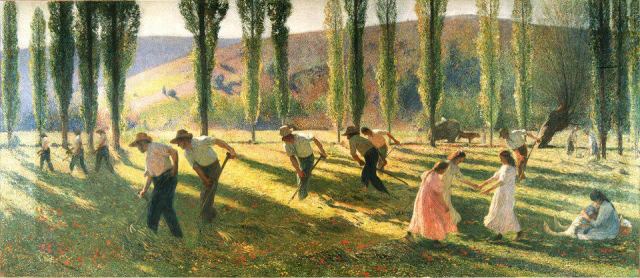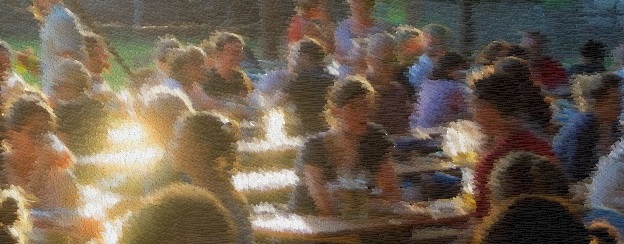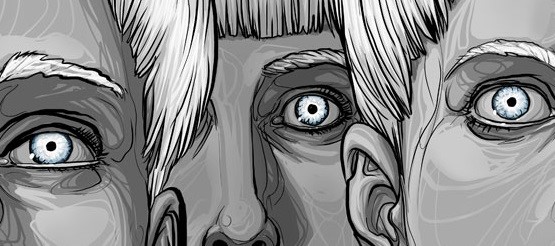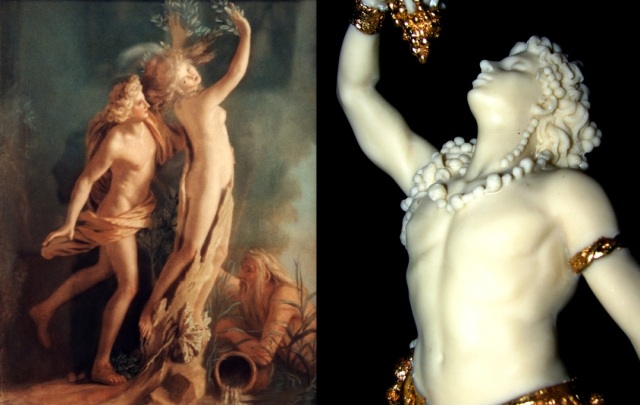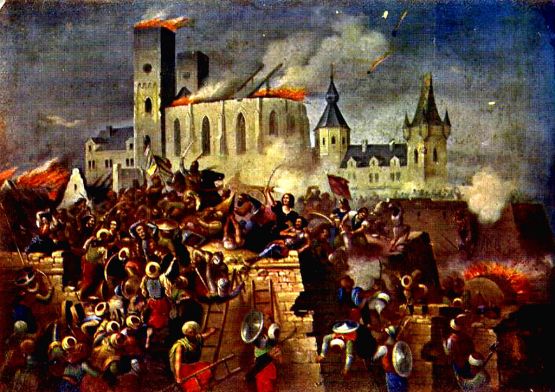
Some are made obscure by the course of history and its keepers. The story of Robert Lewis Dabney is one few Americans have heard. He rests among the greatest Southern intellectuals, leaving the defense of his reputation to posterity. If the South is to move forward, Dabney must be reexamined. Our ambition, therefore, is the perpetuation of his legacy.
He was a giant of the 19th century, described by Princeton Seminary leader Archibald Hodge as the “best teacher of theology in the U.S. if not the world.” A living example of Calvinism working itself out in the Southern context, he embodied the richness, depth and rigor of the Southern Presbyterian tradition. His religion had its foundation in sola scripture, the crying call of the Reformation. He gave supreme authority to the word of God, it colored how he viewed all of life. Ruthlessly logical, he followed things to their inevitable end. As a result, he is considered by admirers to be one of the most prescient men of the 19th century.
So much of what is lamentable about modern America was predicted by Dabney. He was a lover of his country and the American system as the Virginian founders envisioned it. He was a constitutionalist, but not a universalist. Dabney loved his people and as a proud Southerner believed in the superiority of Southern man and the Southern way of life. As passion demands, he was both a lover and a hater. He hated the enemies of Christ and Southern civilization intensely, but he loved his God and his country equally so. Hurt by the South’s loss more than most, its subjugation was unbearable for him. He saw pre-war Dixie for what it was, the last bastion of European Christendom. Virginia was a holy land blessed by God.
A believer in the constitution and state sovereignty, Dabney was a Jeffersonian of sorts. His idea of republicanism, he made clear though, could only work among a morally righteous and uniform people. Other forms like monarchy were legitimate and appropriate in other contexts, but he believed in the greatness of the American system. He contrasted that system (as he understood it) with democracy, for which he had nothing but contempt. He referred to it as “mobocracy.” The flaws he pointed out are similar to those noticed by Plato and Aristotle. He wrote extensively on the evils of Jacobinism, making a clear distinction between the French and American revolutions. In his estimation, the two were worlds apart.
Contrary to certain libertarian notions of constitutionalism, agrarian society was for Dabney, fundamental to the American system. General equality (in the practical sense) was also necessary to that condition. Such an equality existed when the nation was made of free White yeoman. The founders vision could never be realized in an industrial society because of the lopsided power centralized capital wields and the inequality in wealth it creates. He touches upon this in, The New South, a commencement speech delivered at Hampden Sidney College in 1882:
“Conditions of social organization are again produced, fully parallel to the worst results of feudalism, in the incompatibility with republican institutions. From these changes have resulted the extreme inequality of fortune, expenditures and luxury which now deform American society. When our late constitution was enacted, American citizens enjoyed a general equality of fortune and comfort, which made a real, republican equality of rights practicable. The only aristocracy recognized was that of intelligence and merit. The richest citizen was only a farmer, somewhat more abounding than his neighbor, in the breadth of his fields.”
And again, in another portion of the speech:
“Such was the form of government instituted for themselves by our free forefathers; and well fitted to their genius and circumstances, as communities of farmers, inhabiting their own homes, approaching an equality of condition, and having upon the whole continent no one city of controlling magnitude or wealth. But this century has seen all this reversed and conditions of human society have grown up, which make the system o four free forefathers obviously impracticable in the future. And this is so, not because the old forms were not good enough for this day, but because they were too good for it.”
His interpretation of the clause from the Declaration of Independence “all men are created equal” differs from the modern one. Equality before the law does not imply an equality in ability, rights or station. Each class has its own respective set of rights that grow out of differences in sex, virtue, intelligence, and civilization. Liberty is the liberty to which God and nature has given an individual the moral right:
“Those wise men did indeed believe in a certain equality of all men; but it was that which the British constitution (whose principles they inherited) was not wont to express by the maxim: that every British citizen ‘was equal before the law . . .’ Our fathers valued liberty, but the liberty for which they contended was each person’s privilege to do those things and those only to which God’s law and Providence gave him a moral right. The liberty of nature which your modern asserts is absolute license; the privilege of doing whatever a corrupt will craves, except as this license is curbed by a voluntary ‘social contract’” [sic]
Dabney’s apparent crossover with Jeffersonianism has less to do with the Enlightenment and more to do with Calvinism. It has been said by some that Calvin was the spiritual father of the American project. They point to Rutherford’s Lex Rex as influencing the founders more than Enlightenment ideas. What drove Dabney to look to the reactionary elements of scripture more so than Northern Calvinists was the influence of Southern civilization and his insistence on keeping one foot firmly planted in reality. There was also a notion among Southern Presbyterians, notably James Henley Thornwell, that the Church had a uniquely spiritual function. That is one quite different than the State. It was no contradiction to marry the doctrines of grace in the context of the Church to the law of nature in statecraft. Southern Calvnism gave Dabney the freedom to apply his rational comprehension of natural order to his thinking in the political sphere. He pointed to Old Testament Israel as a precedent to support his conclusions.
Dabney’s rejection of egalitarianism is shown starkly in his classification of the “Negro,” “the African has become, according to a well-known law of natural history, by the manifold influences of the ages, a different, fixed species of the race, separated; from the White man by traits bodily, mental and moral, almost as rigid and permanent as those of genus.” He saw miscegenation as a virtual abomination, “the offspring of amalgamation must be a hybrid race, stamped with all the feebleness of the hybrid, and incapable of the career of civilization and glory as an independent race.” Covenantal Theology teaches that God interacts with us not just as individuals but also as groups, that there is a particular and a corporate aspect to our relation with him. Dabney cites God’s separation of the Gibeonites, a people with lesser rights, from the Israelites to prove that God’s common wealth was not egalitarian. Unlike Jacobinism, rights are not absolute in a Christian system. In the Gibeonite example, the actions of one people affected the children of that people and relegated them to a different status, despite individual capability or moral integrity.Dabney did not consider the Black race capable of civilization. They had no claim to that which the White man had by right of birth.
Dabney’s defense of slavery is difficult for modern evangelicals to swallow. We must remember though the value system of the antebellum South was the complete reverse of our own. In A Defense of Virginia and the South, he cites countless passages from both the Old and New testaments. The work contains a rock-solid analysis of the Bible’s view of the issue. Departing from the Reformed tradition of rigorous Biblical analysis, Dabney’s modern critics assert that his positions are racist without refuting him. He also noted that Northern industrialism provided free Irish a much lower condition of life to that of the “Negro” in the South. He cited the healthy condition of the “Negro” both spiritual and physical as indicating the beneficence of the Southern institution. He argued against the belief that slave labor was economically less efficient than free Northern labor, “the neatest, most thorough and most profitable agriculture, and the highest priced land, the finest farm stock, and the most prosperous landholders, are to be found precisely where the slave labour is most prevalent.”
He was critical of the abuses of the slave trade and of abuses within the institution but it did not follow that it should be condemned in whole. He said that “Negro” suffrage would be, “extreme political madness.” An unnatural pairing of two races in the same society would lead to tyranny. The object of the state was the common welfare. Southern society and Africans themselves would both be harmed by Black emancipation, they had no right to it. He predicted two possible outcomes of such a development. A war where one of the groups was exterminated or amalgamation. The civilized South might well turn into a mongrelized nation similar to Mexico.
Post-emancipation Dabney opposed accepting “Negro” presbyters to rule over White churches. A step which he said, “would seal the moral and doctrinal corruption of our Church in the South, and be a direct step towards that final perdition of Southern society, domestic amalgamation.” Luckily the worst of Dabney’s concerns were not realized, though they remain relevant potentialities to this day. Whites were able to wrest back control of their institutions after reconstruction and Jim Crow helped prolong the life of the South as Dabney had known it. More importantly, a God-fearing, Church-going spiritual vigor maintained the South’s will to resist. Even today its people have yet to fully submit to the North’s anti-Christian weltanschauung.
Consistent with his agrarian outlook, Dabney was a critic of the so-called advancements of his day in economics and production. Excepting large ventures such as railroad construction, he favored small business to large conglomerate corporations. His insights wouldn’t sound out of place among modern critics of corporatism, both left and right. He advocated co-partnerships where the participants would be liable for their venture. Corporations were entities which removed liability from any single individual and therefore presented social problems. With personal liability removed, corporations could be misused. This included, for example, taking out loans for a risky venture and then afterward becoming insolvent, passing the cost of wasted capital off on society, while leaving those who took part in the venture no worse for the wear. With a large corporation efficiency is lost in a managerial web of overpaid administrators and the cost is passed on to the customer. Dabney admits that new techniques in production do lower the price of goods, but that cheapness comes in spite of the clunky corporate model, not because of it.
In addition, a corporation is a soulless legal entity that gets the same privileges as a person, a machine with legal rights that interacts with society in an impersonal way. People committing injustices on the ground are following orders from superiors and superiors never get to experience the injustices first hand, thus taking the human element out it. Where does moral culpability fall in such a situation? Is the duty to the welfare of the public or to the stockholders?
Dabney knew this entanglement would create moral dilemmas. These entities in practical effect would work for the pecuniary advantage of the few individuals who had the means to take full advantage of them. They could easily be used by anti-social types to gain an advantage over the rest of the public. What is to stop corporations from using the wealth they gain to bribe for legislation that favors them? The result is, Dabney argued, corporations that are more powerful than the governments of states in which they reside. He predicted a new form of despotism would arise from these conditions. The rich would get richer and the poor will get poorer. Large stock holders might well mislead the public while colluding behind the scenes to profit off of their ignorance. What’s to stop them from saying “bear” when they want to buy and “bull” when they want to sell? Dabney expresses his concerns in an essay entitled The Philosophy Regulating Private Corporations. He worried about the effect corporatism would have on the freedom and dignity of average Americans. In this particular passage he laments the destruction of independent production and small farming:
“the forms of industry promoted by the powerful corporations tend to undermine the domestic and personal independence of the yeomanry. The associated means of production supplant the individual, the products of the older and more independent forms of industry retreat before those of the corporations . . .
The wheel and the loom are no longer heard in the home. Vast factories, owned by corporations, for whose governors the cant of the age has already found their appropriate name as “kings of industry,” now undersell the home products everywhere. The axe and the hoe which the husbandman wields, once made at the country forge, the shoe upon his mule’s feet, the plough with which he turns the soil, the very helve of his implement, all come from the factory. The housewife’s industry in brewing her own yeast can hardly survive, but is supplanted by some “incorporated” “baking powder,” in which chemical adulteration may have full play.
Thus, the centralization of capital leads at once to the centralization and degradation of population. The free-holding yeoman citizen is sunk into the multitudinous mass of the proletariat, dependent on the corporation for his work, his wages, his cottage, his kitchen garden, and privilege of buying the provisions for his family.”
Centralized capital also promotes political centralization. Conglomerate entities had supported Congress assuming the power to create the first banking corporation, the precursor to the Federal Reserve, a move that Dabney called “a perversion of the constitution,” a perversion of “that equitable model designed by the fathers.” Corporatism led to the protective system of tariffs which were also unconstitutional. Dabney believed if it weren’t for the influence of these corporations, Southern secession wouldn’t have been necessary and without their aid the North wouldn’t have been able to conquer the South.
Dabney had trouble seeing the possibility of restoration, but he has much to offer by way of moving forward. The South’s loss took a toll on him. For a period of time he thought of emigrating with like-minded Southerners to South America or Europe, “I fear the only way to save Virginia is to take her out of Virginia.” Many wrongly suppose as they do with reformer Martin Luther that Dabney’s mental and moral capacities declined in his waning years. It is true that the war had affected him, but according to biographer Thomas Carey Johnson, “At the close of this period, in May, 1869 there can be no question that Dr. Dabney was mentally greater than he had ever been before. Nor should there be question that he had improved morally.”
He understood as few did the meaning of the South’s defeat and its implications for the future of Western Civilization. He could never let rest the injustices committed against Virginia and the wounds inflicted upon her. Her ground had been soaked with the blood of her greatest citizens. To his credit, he saw the truth clearly when so few did and stood certain of the righteousness of his cause. While he apologized to Southern posterity for his generation’s failure to preserve their inheritance, he called us to remember those who had sacrificed everything in fighting for it:
“The heritage of freedom that our fathers left us we have not been able to bequeath to you. Our other apology is, that in the endeavor to save the liberties transmitted by our fathers, we did what we could. And in proof of this justifying plea, we can point to the forms prematurely bent, and the heads whitened by fatigue and camp diseases, to the empty sleeves, and wooden legs, and the Confederate graves so thickly strewn over the land. (The New South)
He likened his people to the Christian prophets and martyrs. The South was maligned while defending the interests of the entire civilized world. He believed the Confederacy would ultimately be vindicated, but that it could no longer exist as it once did. The new dispensation had made this an impossibility. His generation had done all they could and having done their duty, their consolation was that they had retained their honor:
Our apology is, again, that while we were contending for the rights and interests of the civilized world, nearly the whole world blindly and passionately arrayed itself against us. Such was the strange permission of Providence, that we, while defending the cause of all, should be slandered and misunderstood by all. But why should I say this fearful dispensation was strange? When we see that from the days of the Christian martyrs until now, mankind have usually resisted and sought to destroy its true benefactors. So it was; we had the world against us . . . subsequent events have shown we were attempting to defend and preserve a system of free government which had become impossible by reason of the change and degeneration of the age. We did not believe this at the time, for we had not omniscience . . . Thus the task which duty and Providence assigned us was, to demonstrate by our own defeat, after intensest struggle, the unfitness of the age for that blessing we would fain have preserved for them. Hard task, and hard destiny to attempt the impossible! But one which has often been exacted by a mysterious Providence from the votaries of duty. Yet it gives us this hard consolation, that inasmuch as the survival of our old system had become impracticable, failure in the effort to preserve it might be incurred without dishonor.”
Going forward, he exhorted that we not succumb to the temptations of the new era. He urged that the “pole-star” for the New South must be the unmoving principles of “scriptural politics.” He called us to remember “righteousness exalteth a nation, but sin is a reproach to any people” (Proverbs 14:34) and that “wisdom and knowledge shall be the stability of thy times, and strength of salvation” (Isaiah 33:6). He gives us some key applications of these principles. He warns against becoming like our conquerors. The temptation lies in the perceived wealth and productive capacity of the North. There existed at the time a desire among young Southerners to place an emphasis on industry in order to compete with the North. He concedes that in the modern era wealth is necessary for greatness, even a country with a great martial spirit will be overcome if he lacks it. He tells us to seek wealth as a means but not as an end. If, making mammon our god, we are overcome by it, that god will make us weak and sink us. If though, we retain a civic spirit of charity and sacrifice, retain our manhood and let it not make us effeminate, we can use it to bolster our section.
His second warning is that we not become so disgusted with the moral state of the world that we draw ourselves away from politics and public life. He warned that this temptation is greatest for those of an elevated nature, the best among us. Such a person cannot “wrap himself like a hermit in the folds of his own self-respect.” This robs the State of virtuous men at a time when it most needs them. The life of the State depends on these men. He said, “If this virtue, the foundation of all the civic, exists in you, it will, it must manifest itself most plainly in reverence and enthusiasm for the heroic and the self-sacrificing of your own people and State.” He counsels against despair and giving in to the notion that all is lost while recognizing the difficulty of his request, “how tiresome is it to such a man to hold up the standard of principle when it is unsustained by the breeze of popularity.”
Finally, and most importantly he urges us to remember the true history of past events. To “be sure that the former issues are really dead before you bury them! There are issues which cannot die without the death of the people, of their honor, their civilization and their greatness.” We must not allow the dominant party to teach a false narrative of history. He anticipated a deluge of anti-Southern propaganda would flood like “the frogs of Egypt, into our houses, our bed chambers, our very kneading troughs.” We must not succumb to false information but diligently learn and transmit the history of the past truly.
To retain our identity, we must have a genuine connection to an unfiltered past. If we are to make sound political calculations, they must be born out of a true discernment of our history, “Tomorrow’s configuration of the planets may be very dissimilar from that of today, but it will be rigidly consequential thereon.” Any political endeavor built on lies must fail. He forewarned that the prophets of the new age would seek to turn patriotism into treason, good into evil, and light into darkness. “If you wish to be buried deeper than thrice buried Troy beneath the final mountains of both defeat and shame, go with these architects of detraction.” Holding with that advice, he urged us to keep alive at all cost the memory of our deceased heroes. On them rests the foundation for our future:
“As long as the hearts of the New South thrill with the generous though defeated endurance of the men of 1861; as long as they cherish these martyrs of constitutional liberty as the glory of their State and its history, you will be safe from any base decadence. If the generation that is to come ever learns to be ashamed of these men because they were overpowered by fate, that will be the moral death of Virginia, a death on which there will wait no resurrection. But I do not fear this. I recall what my own eyes witnessed at the last great civic pomp in which I was present. This was the installment of that statue of Jackson near our State capitol, which Virginia received as the tribute of British statesmanship and culture to her illustrious dead . . . Then came hobbling a company of two hundred and thirty grizzled men with empty sleeves, and wooden legs, and scarred faces, and hands twisted into every distortion which the fiery fancy of the rifle-ball could invent, clad in the rough garb of a laboring yeomanry, their faces bronzed with homely toil; this was the company for which every eye waited, and as it passed the mighty throng was moved as the trees of the forest are moved by the wind, the multitudinous white arms waved their superb welcome, and the thundering cheer rolled with the column from end to end of the great city. It was the remnant of the Stone-wall Brigade! That was the explanation. This was the tribute which the sons, the daughters, the mothers of Virginia paid to sturdy heroism in defeat.”
Dabney understood that as long as the spirit of Jackson burned in hearts of the Southerners, all was not lost. That flame is not yet extinguished and as long it burns, however diminished, there is still hope.
“And as I saw this my heart said with an exultant bound, ‘There is life in the old land yet!’”

